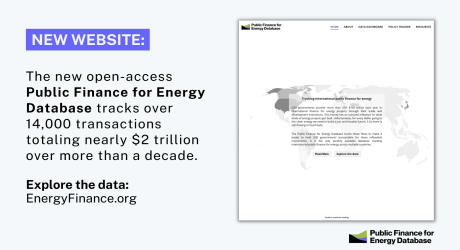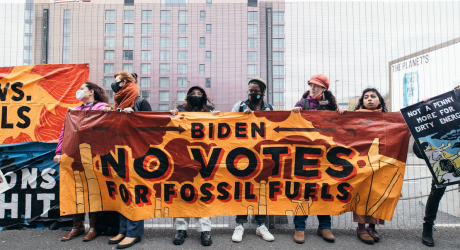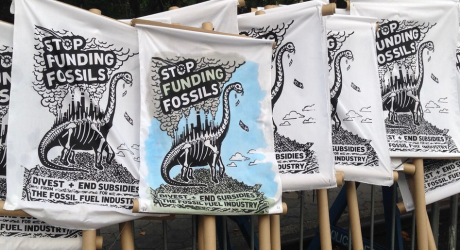PUBLIC FINANCE
Governments are still spending billions subsidizing oil, gas and coal. We need to #StopFundingFossils and start investing in the future.
OVERVIEW OF WORK
Since the Paris Agreement, G20 governments have continued to finance more than USD 77 billion dollars annually in fossil fuels through multilateral development banks (MDBs), bilateral development finance institutions (DFIs), and export credit agencies (ECAs). This is three times the support they provide to clean energy. Beyond providing this direct monetary backing, these institutions reduce perceived risk and provide a government stamp of approval on fossil fuel projects that often serves to crowd in private finance. While recently the level of fossil fuel support has started to drop, institutional policies to exclude fossil fuel finance are needed to ensure this progress continues.
While a number of public finance institutions committed to ending coal finance in the early 2010s, it wasn’t until 2017, following years of campaign pressure by Oil Change and others, that the World Bank made a meaningful commitment to stop financing for upstream oil and gas. Following an intense campaign effort, in 2019 the European Investment Bank committed to ending nearly all oil, gas and coal finance. Recently, the UK announced it would end overseas oil and gas finance, and the EU and US, among others, have signalled that they intend to follow suit. Building off these successes, OCI is now working to secure further commitments from governments and public finance institutions on ending public finance for fossil fuels.
LATEST PROGRAM POSTS
Public Finance for Energy Database tracks all energy-related transactions from G20 bilateral development finance institutions (DFIs), G20 export credit agencies (ECAs), and the major multilateral development banks (MDBs). This includes 14,000 transactions going back as far as 2008 and totaling nearly $2 trillion.
We have had great victories this year. But there is still so much more to do in order to stop fossil fuel extraction and fight for climate justice and a just transition and to stop further warming. Indeed, the warning signs continue to come. This week, scientists presented alarming news from Antarctica ...
President Biden has continued to approve fossil fuel expansion in recent months, while pointing to Congress to excuse the United States’ lack of climate ambition and espousing false solutions like carbon capture and “net zero” plans that perpetuate fossil fuel destruction and environmental racism.
La Banque Postale, which is a relatively small but progressive bank in France, has set an international precedent against oil and gas expansion. The bank, which was already committed to ensuring that its banking activities achieve net zero carbon emissions by 2040, announced a complete withdrawal from fossil fuels by the 2030. Will other banks now follow?
LATEST PROGRAM RESEARCH
Despite the urgent need to phase out fossil fuels, Japan is driving the expansion of liquified gas (LNG) and other fossil-based technologies like ammonia co-firing, worsening the climate crisis and harming communities and ecosystems.
*Updated February 2024* Oil Change International analysis shows that several major countries continue to pump $6.2 billion in public finance into international fossil fuel projects despite committing to end this support by the end of 2022.
New research shows that Organisation for Economic Co-operation and Development (OECD) countries supported fossil fuel exports by an average of USD 41 billion from 2018-2020, almost five times more than clean energy exports ($8.5 billion).




